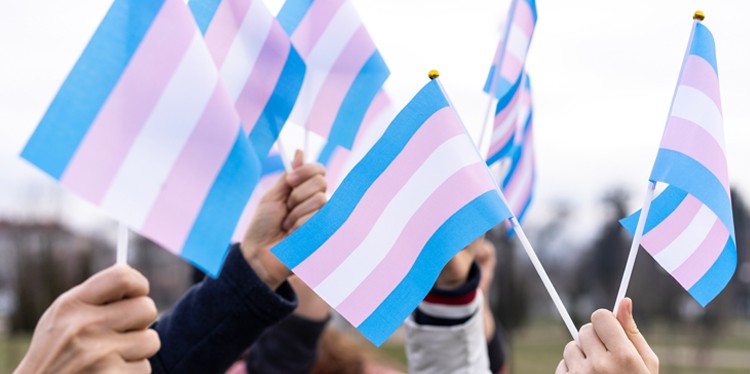Gender-affirming care: What is it?

A hot topic in the news is the number of states in the U.S. that are signing laws related to healthcare for transgender youth. Specifically, there are laws that target gender-affirming care, which is a supportive treatment for transgender youth. With the significant misinformation being shared on the purpose and need of gender-affirming care for youth, it is important for us to define it and clear up the misconceptions surrounding this form of healthcare. The following are frequently asked questions.
What is gender-affirming care?
According to the World Health Organization, gender-affirming care is, “any single or combination of a number of social, psychological, behavioral or medical (including hormonal treatment or surgery) interventions designed to support and affirm an individual’s gender identity.” This care supports the transition of transgender and non-binary individuals, meaning that it helps transition people socially, physically, and mentally to their gender identity.
As of the publication of this article, 19 states have banned gender-affirming care for youth under 18.
What are the laws in place?
Necessary medical care, like puberty blockers and gender reassignment surgeries, is prohibited by these laws. Providers who offer such care risk losing their licenses and criminal punishment and resources for social transitioning are limited. Out-of-state telehealth care is also not allowed.
What are the myths related to gender-affirming care?
Myth 1: Youth who undergo gender-affirming treatments will regret it.
Truth: Only 1% of people who transition regret it because transitioning is a life-saving care that supports gender-diverse youth.
Myth 2: These bans will protect youth.
Truth: Bans do the exact opposite. Suicidality, suicide attempts, and completed suicides are high among gender-diverse youth. Gender-affirming care, whether it is hormone therapy or social support towards transitions, makes a difference in reducing suicidality and saving youth’s lives.
How can you support youth?
- Support and push for bills supporting gender-affirming care. Currently, 11 states (WA, CA, CO, NM, MN, IL, VT, MA, CT, NJ, and DC) protect gender-affirming care.
- Dispel myths and misinformation about gender-affirming care and gender-diverse people.
- Support and listen to the gender-diverse people in your life; they need your help more than ever.
Sources
- Department of Health and Human Services: Info about Gender Affirming Care for Youth
- CNN: 19 states have laws restricting gender-affirming care, some with the possibility of a felony charge
- NIH: Regret after Gender-affirmation Surgery: A Systematic Review and Meta-analysis of Prevalence
- Human Rights Campaign
About the author
Rhea Alley is completing her Master of Public Health in Community Health Promotion and minoring in Sexual Health at the University of Minnesota. She is doing her applied public health experience with the Between Us program.

